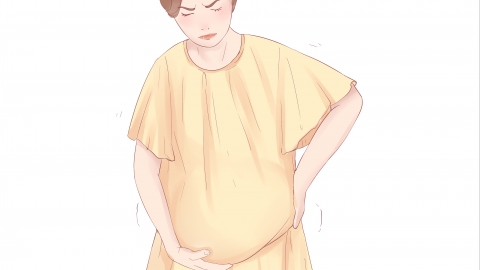What causes thick, paste-like vaginal discharge during the second trimester of pregnancy, and what should be done about it?
During mid-pregnancy, thick, paste-like vaginal discharge may result from hormonal changes, inadequate hygiene, vulvovaginal candidiasis, bacterial vaginosis, cervicitis, or other causes. Symptoms can be improved through proper cleaning, lifestyle adjustments, and medical treatment. If accompanied by odor, itching, or abnormal bleeding, prompt medical attention is necessary.
1. Hormonal changes: In mid-pregnancy, elevated estrogen and progesterone levels stimulate increased secretion from cervical glands, causing physiologically thickened discharge without odor or itching. It is recommended to keep the external genital area clean and dry, wear loose cotton underwear, and avoid excessive internal vaginal cleaning.
2. Poor hygiene: Delayed cleaning of the vulva leads to accumulation of secretions and bacterial growth, worsening the thickness of discharge and possibly causing mild odor. It is advised to wash the vulva daily with warm water, change underwear frequently, and disinfect used underwear by scalding with boiling water and sun-drying.

3. Vulvovaginal candidiasis: Immune changes during pregnancy allow excessive growth of Candida species, leading to infection. Discharge becomes thick and curd-like, accompanied by vulvar itching and burning pain. Symptoms should be treated under medical guidance using medications such as clotrimazole suppositories, miconazole nitrate suppositories, or nystatin suppositories.
4. Bacterial vaginosis: Imbalance of vaginal flora with overgrowth of anaerobic bacteria causes infection. Discharge appears thick and gray-white with a fishy odor. Treatment under medical supervision may include metronidazole suppositories, clindamycin cream, or nitrofurantoin-nystatin vaginal soft capsules.
5. Cervicitis: Bacterial infection causes inflammation of the cervix, increasing secretions due to inflammatory stimulation. Discharge becomes thick and yellowish, possibly accompanied by lower abdominal pressure or discomfort. Follow medical advice to use medications such as cefixime dispersible tablets, azithromycin dispersible tablets, or Sophora flavescens gel to relieve symptoms.
Maintain cleanliness and dryness of the vulva, wear breathable cotton underwear, wash the external genital area daily with warm water, avoid spicy and irritating foods, maintain regular sleep patterns, attend routine prenatal checkups, and monitor any changes in vaginal discharge characteristics.









